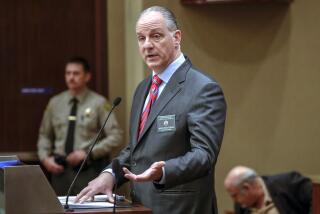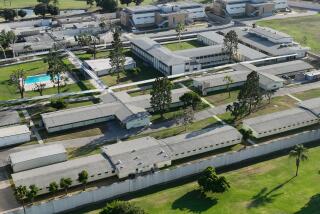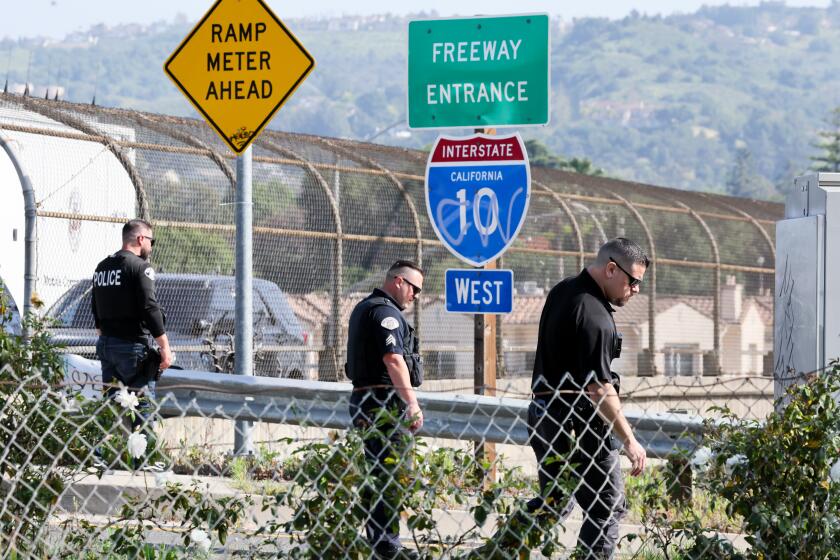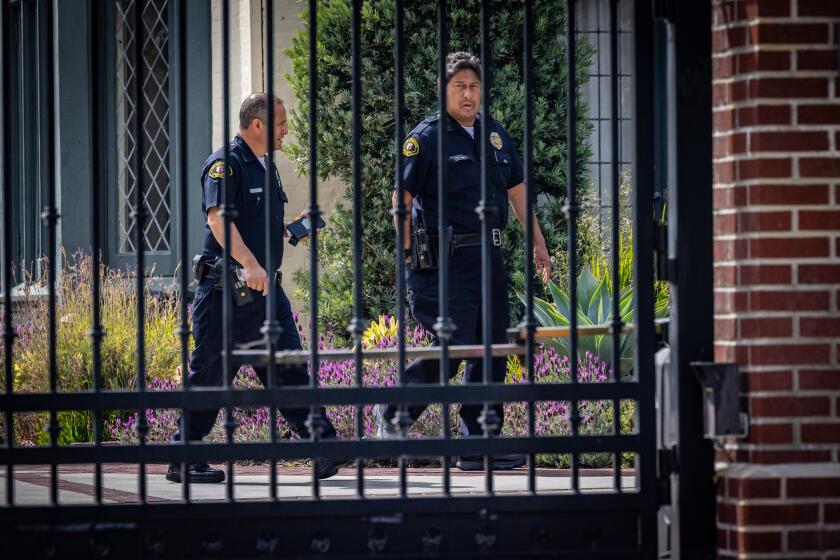L.A. County’s child protection system in ‘state of emergency’

The Blue Ribbon Commission on Child Protection has concluded that L.A. County’s system to protect abused and neglected children is in a state of emergency.
A new report from the blue ribbon commission on Los Angeles County’s safety net for abused and neglected children levels stinging criticism at the Board of Supervisors for what it calls a sluggish approach to reform, and declares that the system has fallen into a “state of emergency.”
“Nothing short of a complete rethinking about how the county ensures safe and supportive care for abused and at-risk children will lead to the seamless and comprehensive child welfare system that the county has needed for decades,” the 10-member commission wrote in a report it voted to approve Thursday afternoon.
The commission members said the elected Board of Supervisors has responded too slowly and failed to identify a coordinated mission and clear, measurable goals for the child protection system, which includes the Department of Children and Family Services and other agencies.
The commission released its first set of recommendations in December. In its new report, it noted that none of the suggestions have been approved and that evaluations of their costs or potential benefits have not been completed.
“Since then, another 5,000 referrals of child abuse and neglect have been investigated without the benefit of systemic reform,” the commissioners wrote. “Each day we wait for reform, 40 more infants are reported as possible victims of abuse and neglect.”
Currently, the commission found, infants sit for hours at social workers’ desks or in holding rooms awaiting foster placements. Also, children are often unable to get return phone calls from their social workers and lack a meaningful voice in decisions about their care, the panel said.
“On our watch, many of Los Angeles County’s most vulnerable children are unseen, unheard and unsafe,” the commissioners said.
The county’s chief executive, William T Fujioka — who has yet to produce a report on the feasibility of the panel’s original recommendations — also came in for criticism. “The commission has requested, but not received, an update on the progress of the analysis,” the commission said. Fujioka’s spokesman said the feasibility study will be released April 18.
A culture of secrecy and an obsession with civil liability often trumps children’s best interests, the report said. “Crucial access to information between appropriate entities, within county government and throughout the community, often is needlessly blocked in the name of confidentiality,” it said. “Problems within the system remain hidden and often uncorrected because of secrecy.”
Expanding on its recommendations in December, the panel’s new report calls for the creation of a new “Office of Child Protection” — sometimes called a child welfare czar — with broad accountability for the overall effectiveness of child protection programs. The office should be led by someone who has extensive experience in child welfare and is empowered to move people and resources across departments.
The county too often designs policy in response to the crisis of the day, not on collection and analysis of reliable data, commissioners said.
The county’s relationships with community groups and foster home contractors need significant improvements, the panel said. Among other things, it said, the county should use “performance-based contracting,” which ties financial rewards to better outcomes for children.
The commission also recommended improved health screenings for infants referred to the county as possible victims of child abuse, as well as for children who enter the foster care system.
“In eight months of hearing hundreds of hours of testimony, the commission never heard a single person defend the current child safety system,” the commissioners said.
Commission leader David Sanders, a former county child welfare chief, said he hoped the Board of Supervisors would immediately name a new oversight committee to guide the implementation of the proposed changes.
The county, Sanders said, should establish the child welfare czar before proceeding on longer-term reforms that might require changes to state and federal laws or regulations. “Once the structural change occurs in the bureaucracy, a number of other things will happen more quickly,” he said. “Under the current structure, it takes a long time to implement anything.”
The commission began its work last summer to improve the county’s child welfare system after the death of 8-year-old Gabriel Fernandez. The boy was found in May with his skull cracked, three ribs broken, bruised and burned skin, and BB pellets embedded in his lung and groin. County social workers had investigated six reports of abuse but allowed Gabriel to stay with his mother and her boyfriend. Both are now facing capital murder charges.
Supervisor Mark Ridley-Thomas, a supporter of the commission, did not agree that the county supervisors had moved too slowly. “I believe the board is being deliberate,” he said. “That being said, it’s time to act decisively now. The matter of child safety is urgent in the county of Los Angeles.”
Supervisor Gloria Molina said she liked the idea of a child welfare czar and was reviewing the other proposals. “I don’t know what the votes will be, but these are certainly recommendations or reforms that I can’t imagine anyone would want to ignore.”
But Supervisor Don Knabe said he was disappointed by the report, calling it “just another round of warmed-over recommendations of the previous 874 we have already received.”
Worse, he added, was that the panel called for more bureaucracy in the form of a new 18-member oversight commission for children’s services. “What we do not need is more interference and micromanaging from committees on high,” he said.
Department of Children and Family Services Director Philip Browning said that, as with past such reviews, his agency would thoroughly review and respond to the report. But he said that process “takes away from whatever activities we would otherwise be doing.”
More to Read
Start your day right
Sign up for Essential California for news, features and recommendations from the L.A. Times and beyond in your inbox six days a week.
You may occasionally receive promotional content from the Los Angeles Times.







